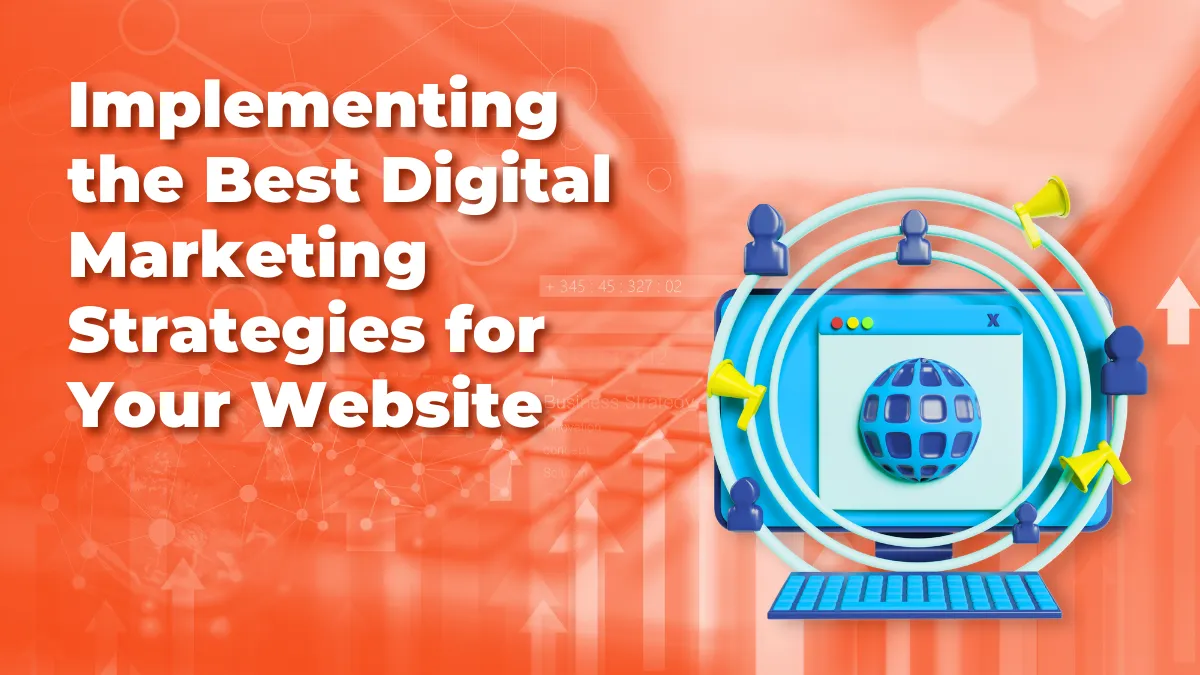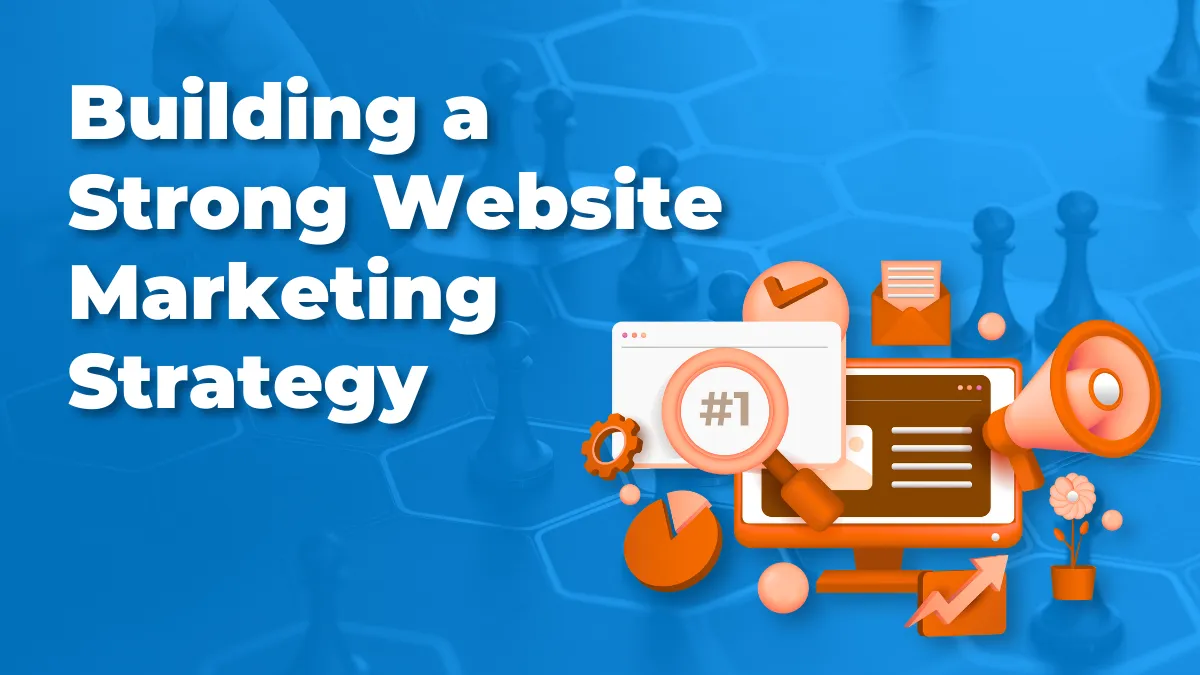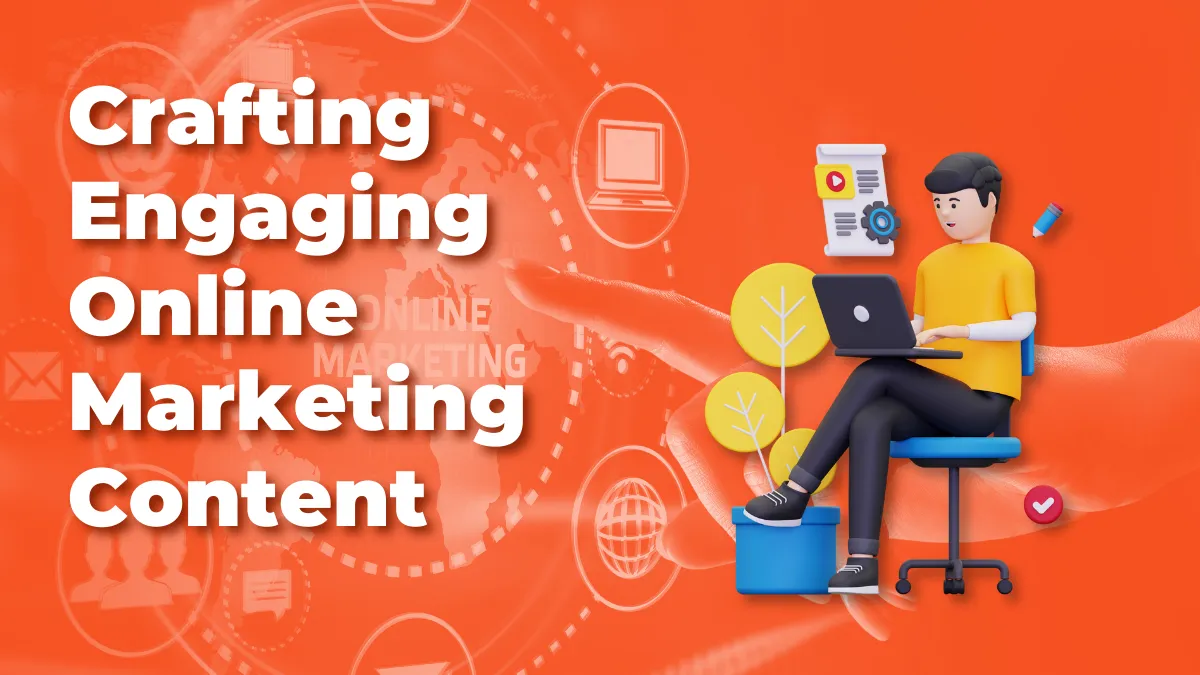A digital marketing agency website isn’t just a digital storefront—it’s a powerhouse that drives conversions, builds credibility, and showcases expertise. In today’s competitive landscape, having a well-optimized, high-performing website is essential for standing out and attracting the right clients. But what makes a marketing agency website genuinely effective? It’s a strategic mix of compelling visuals, seamless user experience, and data-driven design.
From crafting engaging content to ensuring fast load speeds and mobile responsiveness, every detail matters. Whether launching a new site or refining an existing one, implementing best practices can make all the difference. We’ll break down the key elements of a winning digital marketing agency website, helping you create a platform that looks great and delivers measurable results.
Implementing the Best Digital Marketing Strategies for Your Website

A digital marketing agency website should be more than just visually appealing—it should function as a powerful tool for attracting, engaging, and converting visitors. To achieve this, agencies must implement the best digital marketing strategies for user experience, search engine optimization (SEO), and lead generation. Below are key areas to optimize for a high-performing website.
User-Centric Design: Enhancing the Visitor Experience
Visitors form an impression of your website within seconds, so a seamless, engaging user experience (UX) is critical. The goal is to make navigation intuitive, ensure accessibility, and create an environment that keeps users exploring your content.
- Intuitive navigation: Organize menus and pages logically, making it easy for users to find key information.
- Mobile optimization: Ensure your site adapts smoothly to all devices, providing a frictionless experience.
- Fast load speed: Compress images, minimize redirects, and optimize scripts to reduce loading times.
- Consistent branding: Use uniform colors, fonts, and design elements to strengthen brand identity.
- Interactive elements: Incorporate videos, animations, and hover effects to enhance engagement.
Users who can effortlessly navigate your site are more likely to stay, explore your services, and ultimately convert into clients.
SEO Optimization: Increasing Visibility and Traffic
Even the most beautifully designed website won’t generate results if it’s not discoverable on search engines. Strong SEO strategies ensure your website reaches the right audience and maintains a competitive edge in search rankings.
- Keyword-optimized content: Use relevant search terms naturally throughout your website copy and blog posts.
- Metadata optimization: Craft engaging meta titles and descriptions that encourage clicks from search results.
- Structured data markup: Implement schema markup to enhance search engine understanding of your content.
- Internal linking: Connect related pages to improve navigation and boost SEO authority.
- Technical SEO maintenance: Regularly update sitemaps, fix broken links, and enhance website security.
With a strong SEO foundation, your agency’s website can attract more organic traffic, ensuring consistent lead flow without relying solely on paid advertising.
Lead Generation Tactics: Turning Visitors into Clients
Attracting visitors is only half the battle—your website must encourage them to take action. A strategic approach to lead generation ensures that users move smoothly through the sales funnel.
- Clear CTAs: Place strong calls to action (e.g., “Book a Consultation” or “Start Your Free Trial”) across key pages.
- Optimized contact forms: Keep forms short and straightforward, requesting only essential details to prevent drop-offs.
- Live chat support: Offer real-time responses to visitor inquiries, increasing engagement and trust.
- Client testimonials: Showcase success stories and case studies to build credibility and influence decision-making.
- Gated content: Deliver valuable resources, such as eBooks or whitepapers, in exchange for user information.
By making it easy for visitors to engage and take the next step, your website becomes a lead-generating machine that continuously fuels business growth.
Building a Strong Website Marketing Strategy
A website marketing strategy is the backbone of any successful digital marketing agency. A well-designed site is not enough; you need a plan to attract, engage, and convert visitors into clients. From crafting clear messaging to optimizing for conversions, every detail ensures your website drives measurable results. Below are essential elements of a strong website marketing strategy to elevate your agency’s online presence.
Clear Brand Messaging: Communicating Value Effectively
Your website should instantly convey who you are, what you do, and why clients should choose you. A strong brand message helps visitors understand your agency’s unique value proposition (UVP) and builds trust from the first interaction.
- Concise UVP: Clearly state how your agency solves client problems better than competitors.
- A consistent tone of voice: Maintain a professional yet engaging tone that reflects your brand personality.
- Client-focused messaging: Highlight how your services benefit clients rather than just listing features.
- Powerful headlines: Use compelling, benefit-driven headlines to capture attention quickly.
- Social proof integration: Include testimonials, case studies, and trust signals to reinforce credibility.
A website effectively communicating its value will keep visitors engaged and encourage them to act.
Conversion-Driven Landing Pages: Optimizing for Engagement
Landing pages are critical for getting leads and driving conversions. Each page should have a clear purpose, whether promoting a service, collecting contact information, or directing users toward an action.
- Strong CTAs: Place persuasive call-to-action buttons (e.g., “Get a Free Consultation”) throughout key sections.
- Minimal distractions: Keep pages clean and focused, reducing unnecessary elements that may divert attention.
- Mobile-friendly layouts: Ensure landing pages load quickly and function seamlessly on all devices.
- Benefit-driven copy: Highlight the advantages of your services, focusing on solving client pain points.
- A/B testing elements: Regularly test headlines, CTAs, and layouts to optimize conversions.
By designing landing pages that consider user behavior, your website can convert more visitors into leads and paying clients.
Mobile and Speed Optimization: Enhancing User Experience
A slow, unresponsive website can drive potential clients away before they even explore your offerings. Speed and mobile-friendliness are essential to a strong website marketing strategy that improves user experience and search rankings.
- Fast-loading pages: Compress images, minimize code, and use caching techniques to enhance speed.
- Mobile-responsive design: Ensure text, images, and buttons adapt seamlessly across different screen sizes.
- Optimized hosting solutions: Invest in reliable hosting to maintain website stability and uptime.
- Lazy loading for media: Load images and videos only when needed to improve page performance.
- Clean site architecture: Simplify navigation and reduce excessive redirects for a smoother experience.
Users who can easily interact with your page are more likely to stay engaged and move through the sales funnel.
Crafting Engaging Online Marketing Content
Your website is more than just a digital storefront—it’s a platform to connect, inform, and convert visitors into loyal clients. To do this effectively, you need engaging online marketing content that grabs attention, delivers value, and encourages action. From compelling blog posts to visually appealing media, the right content strategy can set your agency apart in a crowded market. Below are key elements to focus on when crafting content that resonates with your audience.
Compelling Blog Posts: Providing Value to Your Audience
Blogs are powerful for driving traffic, building authority, and nurturing leads. Your agency can attract potential clients by consistently publishing high-quality, informative content while improving search engine rankings.
- Educational topics: Cover industry trends, marketing strategies, and case studies that offer real insights.
- SEO-driven content: Use keyword research to optimize articles for search engines and increase visibility.
- Engaging writing style: Keep the tone conversational yet professional to maintain reader interest.
- Actionable takeaways: Provide step-by-step guides, checklists, or tips that readers can immediately apply.
- Internal linking: Connect blog posts to relevant service pages to guide visitors.
Well-crafted blog posts position your agency as a thought leader, keeping visitors engaged and encouraging them to return for more insights.
Client Case Studies: Showcasing Real Results
Potential clients want proof that your agency can deliver measurable results. Case studies offer a powerful storytelling approach to showcase your success in helping businesses grow.
- Clear problem statement: Describe the client’s challenges before implementing your strategy.
- Detailed solution: Explain how your team addressed the problem and the tactics used.
- Quantifiable results: Highlight key metrics such as increased traffic, conversion rates, or ROI.
- Client testimonials: Include direct quotes from satisfied clients to add credibility.
- Visual data representation: Use charts, graphs, or before-and-after comparisons to illustrate success.
Integrating case studies into your website builds trust and demonstrates your agency’s expertise in delivering real-world marketing solutions.
High-Impact Visuals: Enhancing Content Engagement
Text-based content is essential, but visual elements make your content more engaging and memorable. Combining media can improve user experience and encourage visitors to stay on your site longer.
- Custom graphics: Use branded visuals, infographics, and icons to break up text-heavy content.
- Video content: To humanize your brand, create short explainer videos, testimonials, or behind-the-scenes footage.
- Interactive elements: Leverage quizzes, polls, or clickable infographics to engage visitors.
- Optimized images: Compress and tag images with alt text to enhance SEO and improve load speeds.
- Consistent branding: Maintain a unified style across all visuals to reinforce brand identity.
By incorporating a strategic mix of written and visual content, your agency can create a website that informs and captivates your audience, making them more likely to convert.
Conclusion
A winning digital marketing agency website isn’t built overnight—it’s crafted with strategy, creativity, and a relentless focus on user experience. From implementing the best digital marketing strategies to developing a strong website and crafting engaging online marketing content, every element is crucial in driving traffic, generating leads, and converting visitors into long-term clients. When your website is optimized for performance, resonates with your audience, and delivers real value, it becomes more than just a digital presence—a powerful marketing engine that fuels your agency’s growth.
Ready to take your agency’s website to the next level? Let the experts at Theme Park Marketing help you craft a site that drives results. Call us at 716-641-2664 or visit our contact page to get started today!



